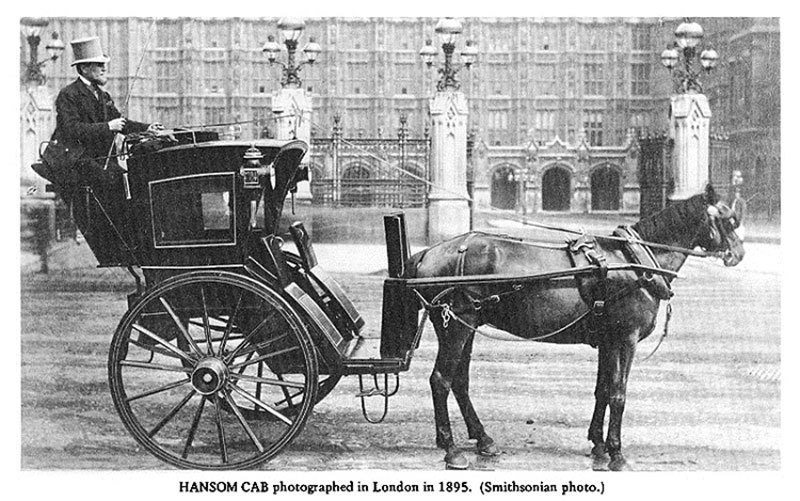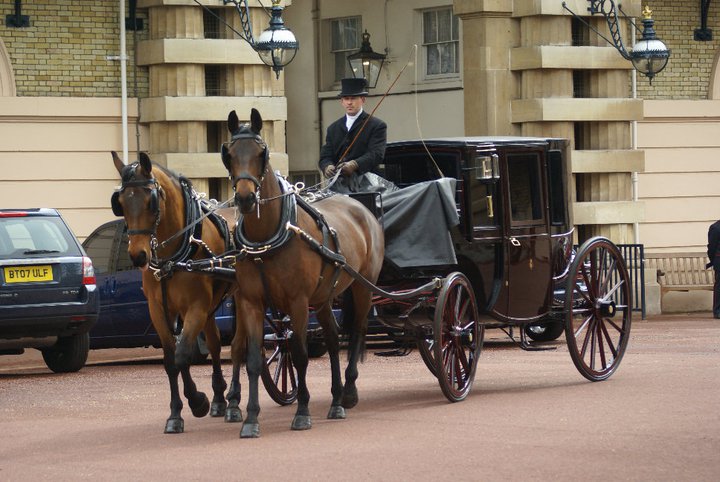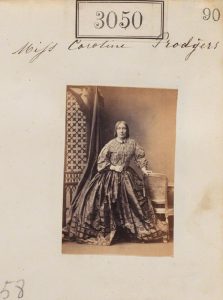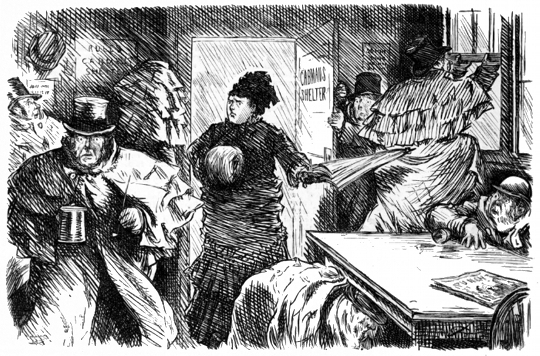‘All great men have their statues and it’s but their due,
But I wonder why the ladies don’t have them too;
If they did, to the Academy I’d like to send,
A bust of Mrs Prodgers the Cabman’s friend.
Of all the strong-minded females she’s the worst I ever saw,
Oh, wouldn’t she be lovely as a mother-in-law?
At the corner of every cab-rank her flag should be unfurled
As a horrible example to this wicked world.’– Herbert Campbell

PHOTO: all-that-is-interesting.com
Last week on History’s Nutcases, we talked about England’s eccentric nobleman, Mad Jack Mytton, who became lord of an English castle at Whittington when he was just two years old, rode bears in his living room, and chugged port all day.
This week, we have an old, motherly woman who, at first glance seemed completely harmless. Ask any cabbie in London, though, and their eyes would widen, fear crawling across their faces, and they’d explain to you that “Mother Prodgers” wasn’t harmless at all, no sir. Caroline Prodgers was the terror of London’s cabby men.
Historical Background
19th-century Victorian London was one of the world’s largest cities and the capital of the British Empire. It housed over 6.7 million people during its height, and it was a globally political, financial, and trade capital, standing completely unrivaled by other cities.
Half the city was thrown into poverty, and half was thrown into sparkling wealth. The London railroad crisscrossed the metropolitan and suburban areas, and soon the city became home to the first subway, called the London Underground.
One popular way of getting around the city was by cabs. Hansom Cabs, created by Mr. A.J. Hansom, were the most popular. These were nimble, two-wheeled carriages drawn by one horse. However, these were considered flashy gentlemen’s cars, and were not proper for upper-class ladies.

A Clarence cab [PHOTO: horsesandhistory.wordpress.com]
Cabbies made a decent living. The work wasn’t too physical, and it was relatively safe. Safe, that was, until Caroline Prodgers descended on London in all of her fury.
The Divorce
Caroline Prodgers was heiress to a considerable fortune through her mother, who was also a wealthy heiress. She’d married Caroline’s father after he saved her from drowning.

Photo of Caroline Prodgers [PHOTO: npg.org.uk]
It was a messy affair. Not only did Caroline try to divorce her husband, she attempted to disinherit him entirely from her fortune by questioning the legitimacy of her own children.
After the divorce, Caroline saw court many more times. Her ex-husband tried to take her to court over a failure to pay for a yearly divorce settlement, causing a great deal of scandal all over London.
Later, she went to court over failure to pay a shorthand writer that she’d hired during the divorce.
That was just the beginning.
Mother Prodgers
Caroline Prodgers just kept showing up in the London news, but after 1871, her divorce, and all of the other lawsuits… the news about this woman began to take on a distinct flavor. She began to terrorize all the cabbies in London.
She used to make cabbies stop right before they could charge her for the full fare, and if they went just one extra yard and charged her for it, she would start shouting at them and get them into a swearing match. Once any of them turned hostile, she’d take them to court over it, suing them for their behavior.
She victimized cabbies all over London, and ended up taking over 50 of them to court. This, unsurprisingly, made her notorious all over London. Even the judges at court were tired of her. One suggested that she should buy her own carriage if she had such a problem with the cabbies.
This woman was obsessed with taking people to court. She didn’t just terrorize cab drivers. One time, she sued her cook for singing on the job. Another time, she got into a fight with a newspaper publisher after she refused to pay the full price for the publication, and then sued him for accidentally tearing her dress during the fight. She even sued a watchmaker for delivering the wrong watch to her house!

PHOTO: publicdomainreview.org
She became so famous for her ridiculous lawsuits and aggressive behavior that she became something of an urban legend in London. Poets wrote poetry about her, artists drew caricatures, and one inventor even tried to solve the problem by creating a fare calculator to attach to each cab!
Her notoriety spread throughout the London cab drivers. If any of them saw her coming, they’d shout “Mother Prodgers!”, and immediately, every cab driver in the immediate area would ditch the scene, afraid of her wrath. She was, in fact, such a horrible person that on Guy Fawkes Day (an English holiday where it’s popular to burn an effigy of the traitor Guy Fawkes), cab drivers allegedly burned effigies of Caroline Prodgers!
She wasn’t only rude to servicemen and cab drivers, though. Once, a passenger on a ship offered her tea, and the story goes she replied: “I have only had afternoon tea once in my life, and that was with the Duke of Sutherland”. Every time she traveled to a new place, the press would go crazy and the whole city would hold its breath. Her departure was always met with relief.
Death
Caroline Prodgers was a notorious figure in London up until her death in 1890. Every cabbie in London breathed a sigh of relief when her obituary was posted in the London news, saying:
Mrs. Giacometti Prodgers, the terror of London cabmen, is dead. Her habit was to drive the fullest possible distance for the money, pay the exact legal fare, and then cause the arrest of the cabman for expressing his feelings.
That just says it all, doesn’t it?

